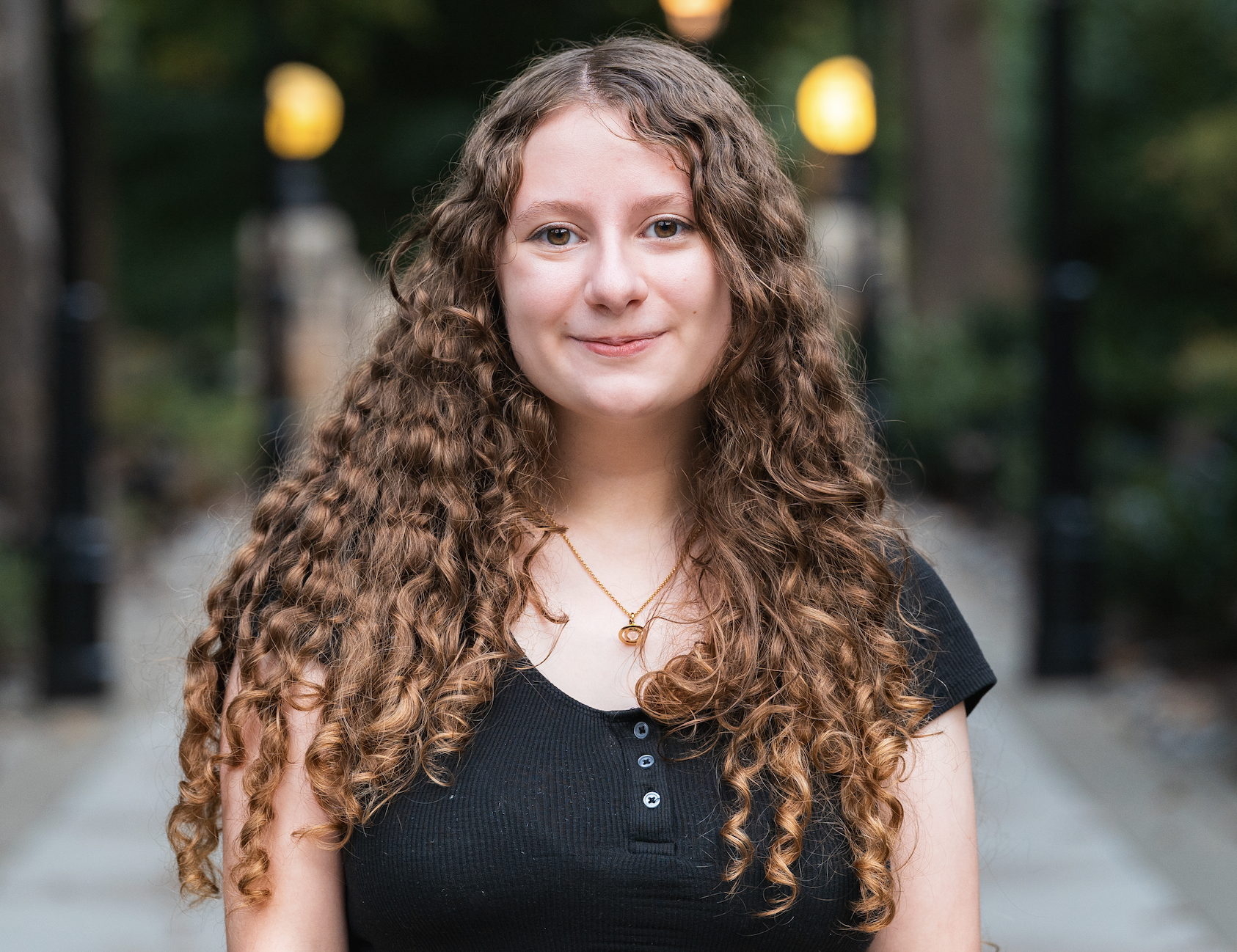From growing crops to studying global health equity, College of Health (COH) senior Julie Wright has embraced every opportunity to learn and lead. Wright has pursued multiple research projects — including an independent study — to explore food and agriculture policy, health equity, environmental justice and social connection. She was also the recipient of a fellowship from the Linda M. and D. Brooks Zug ’67 Community Health Student Internship Fund, which supports students who have secured unpaid internships in the health sector.
Originally from Bala Cynwyd, PA, Wright will be graduating a semester early, but she is not going far. This January, she will stay on at Lehigh by pursuing the 4+1 Master of Public Health as a recipient of Lehigh’s Graduate Merit Scholarship. As she nears the end of her undergraduate experience, we asked her to reflect on her research, mentorship support and her time at the COH.
How would you describe the College of Health?
I would describe the College of Health as one of Lehigh’s core colleges that studies community and population health. Those are ways of looking at public health through political and data-focused lenses and really focusing on global health equity. The College of Health is a place where you can look at any sort of health or political issue and explore how it works in the world and explore how we can create better communities.
It's super small. You’re going to get to know your professors super well. They’re always looking for opportunities to connect with College of Health students, and they want to see you do amazing things.
You told me that once you attended Lehigh, it became clear that this is where you are supposed to be. Why do you say that?
On literally my second day on this campus, they sat us down for a College of Health mini-orientation. It was so clear from this day that all the professors were so caring and wanted to meet all of us. Dr. Gusmano brought me into his office and explained his research about avoidable hospitalizations to me for an hour. People were talking about health in such expansive and incredible ways that I’ve never heard of before. There’s just so much to learn. From the beginning, I felt very assured that I was in a place where people wanted me to grow.
Tell me about your independent research study.
I started out doing a Creative Inquiry fellowship in permaculture, a zero waste, gardening, agricultural and environmental management philosophy that helps people produce food in ways that focus on holistic ecosystems and environmental management without using conventional agriculture practices. This experience taught me about the relationship between agriculture and community agency, and I used the College of Health Professional Development Fund to present on our work at Michigan State University. After doing permaculture and literally growing crops for a year with Creative Inquiry, I felt like there was so much more to explore about the political implications of this practice and where it could grow.
I went back to Dr. Jackson, who was my first professor ever in Intro to Community Health. Over a year and half, we met every two weeks. I would tell her what I was reading and what I was finding. She helped guide me through writing my own paper that recently was sent to peer review under an agricultural journal. It’s thousands of my own words on my own research on self-expression and identity through agriculture — such an interdisciplinary topic that I never thought I would study when I came to Lehigh. It’s really special to me. I’m so glad that she supported me through that entire process.
Have you had any other faculty mentors?
Austin Duncan started in my junior year, and we met before he actually even got his job at Lehigh. We met at a lunch where they bring in the faculty candidates to meet with students. We talked about his research and about the importance of studying and understanding neurodiversity. After he got hired, I sent him an email saying, “I really liked our conversation, let’s talk.” And it basically ended up in him saying, “Hey, I’m going to do this research project on urban accessibility, wellness and disability, and the relationship between disability and social connection. Do you want to be my research assistant?” It was perfect because even though I was doing my own independent research, I still wanted the experience of working for a professor and being on a more fully fleshed out research team.
He's also been a great mentor. We’re going to New Orleans in a couple weeks to present our research. We’ve gone to a couple other conferences.
What are your plans for after graduation?
In the short term, my plans are to pursue my master’s in public health at Lehigh. In the long term, I want to pursue a career in global governance, philanthropy and foundational work, focusing on health and food policy, working in the big institutions that drive those political changes.
What other unique experiences have you had with the College of Health?
The College of Health also gave me the Zug fellowship, so that I could work with the Rodale Institute, a leader in regenerative agriculture, for a semester. I worked with them on planning their regenerative healthcare conference, which bridges the gap between regenerative farmers, growers and healthcare institutions that would benefit from all this knowledge on the food as medicine and agriculture-to-health connection. It was also with a Lehigh alum, who was my supervisor. Because of that specific fellowship, I was able to get that experience — and also meet the donors, who are really sweet and awesome people.
This past summer, I was also supported by the Fellowship for Experiential Learning Opportunities (FELO) fund to pursue an internship with the PA Department of Human Services, where I worked to improve accessibility and efficiency in County Assistance Offices.
